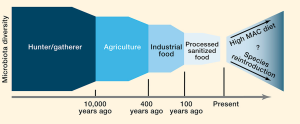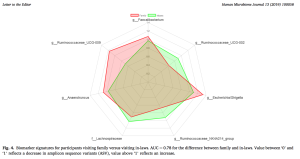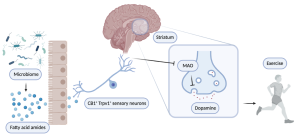Christmas and in-laws, gut implications
A study could confirm the beliefs about your second half’s family…
Just like every December, the end-of-year holidays are a terrain of important decisions concerning our physical and mental integrity. Many have to divide the days between family, friends, and in-laws.
What effect could all this have on our microbiome? The question may seem strange, even senseless, but scientists have looked into it with a serious and small study.
The question we might ask is what is the effect of these end-of-year holidays themselves on our body and microbiome, especially considering the many occasions to share between friends and family endless copious meals, whether in the northern hemisphere (winter) or the southern hemisphere (summer). But we’ll maybe look into that another time (spoilers: the average weight gain is 370 grams in the US). The question today is based on another factor, emotional stress.
So yes, the authors of the publication studied 28 healthy volunteers on the effect of spending 3 consecutive days in their own family or in-laws on their microbiome. Their intestinal microbiomes were analyzed before and after this period and their diet and alcohol consumption followed using questionnaires.
The results:
- No difference in calorie intake or alcohol consumption between the two groups
- The authors identified statistically different bacterial population changes between the two groups.
- The subfamily Rumminococcaceae_UCG-009 is increased in people spending Christmas with family and decreased in people spending Christmas with in-laws.

According to the authors, these minor changes in populations of the Ruminococcaceae family could be comparable to what is observed in other studies. Indeed, other studies have shown a reduction of genes from the Ruminococcaceae bacteria family in humans with major depression, as well as in rats subjected to chronic stress.
The authors speculate that 3 days spent at Christmas in the family of one’s spouse could constitute an environmental stress factor.
Note from ISKO team
This article is about a real scientific article, with real data but without an experimental framework taking into account natural biases. None of the conclusions should be taken as absolute truth.
Moreover, even if a larger study reproduced these results and proved a statistically valid correlation between time spent with in-laws and emotional stress, this would not be the case for everyone, by definition.
In the meantime, don’t forget to take your ISKO kefirs to mitigate any disruption… of your microbiome!
On behalf of ISKO team, we wish you a very pleasant end of the year celebration
Reference
The effect of having Christmas dinner with in-laws on gut microbiota composition
(https://doi.org/10.1016/j.humic.2019.100058)




